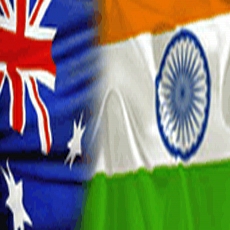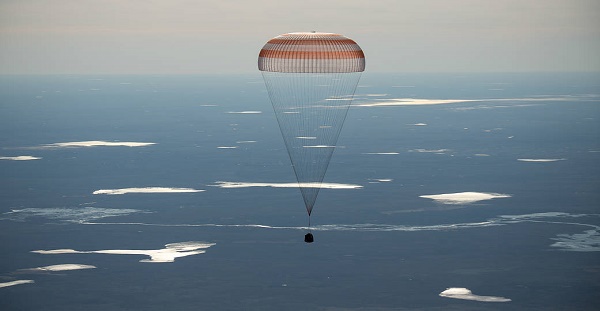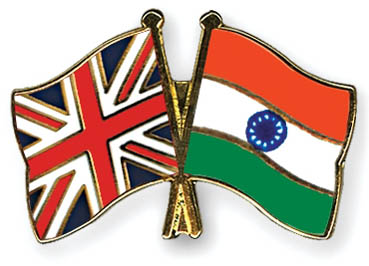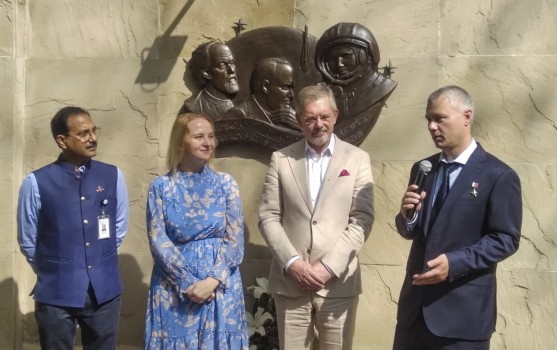
NEW DELHI (PTI): A pact to significantly expand counter-terror cooperation was among six agreements India and Australia inked on Monday as the two countries called for strong action against those financing and providing sanctuary to terror groups.
However, no breakthrough was achieved on a comprehensive economic cooperation agreement (CECA) during talks between Prime Minister Narendra Modi and his Australian counterpart Malcolm Turnbull who merely decided to direct their respective officials to hold an early round of negotiations for the free trade deal.
During their talks, the two leaders decided to significantly expand their ties in several key areas including defence, trade, energy and education.
While Modi thanked Turnbull for passage of a legislation by the Australian parliament with bi-partisan support paving way for the country to export uranium to India, Turnbull said he was looking forward to starting the supply "as soon as possible".
Both the prime ministers felt that commercial export of Australian uranium could begin soon, opening up a new avenue for Australia to support India's energy requirement.
The entire expanse of bilateral ties was reviewed at the talks including issues relating to Indian students studying in Australia and ways to deepen maritime security in the Indo-Pacific region.
"We took a number of forward-looking decisions to further strengthen our partnership, including the decision to soon hold the next round of negotiations on a CECA," Modi said at a joint media event with Turnbull.
Using cricket analogy, Modi, in a lighter vein, said "I am, of course, glad that our decisions are not subject to the DRS review system." Decision Review System (DRS) is a technology-based mechanism in cricket to review controversial umpiring decisions.
Referring to martime issues, the joint statement said both leaders recognised the importance of freedom of navigation and overflight, unimpeded lawful commerce, as well as resolving maritime disputes by peaceful means, in accordance with the international law.
It is seen as a reference to China's growing assertiveness in South China.
Modi and Turnbull also welcomed "continued and deepened" trilateral cooperation and dialogue among Australia, India and Japan.
In the talks. Turnbull noted Australia's strong support for India's membership of the Nuclear Suppliers Group. He also said Australia supports India's entry into the Australia Group and the Wassenaar Arrangement, the two key export control groups.
On CECA, Turnbull did not give a timeline for the deal but said, "I think it's fair to say that progress has not been as fast as either of us would have liked."
The two prime ministers have now asked negotiators on both sides to find a way out and list their priorities soon so that talks on it can move forward. There were indications that sticking points on the pact included issues relating to agriculture.
On the threat of terrorism, the two leaders asserted that the fight against terrorists, terror organisations and networks should also identify, hold accountable and take strong measures against those who encourage, support and finance terror, provide sanctuary to terrorists and terror groups, and falsely extol their virtues.
"They emphasised the need for urgent measures to counter and prevent the spread of terrorism and violent extremism and radicalisation and expressed their determination to take concrete measures to step up cooperation and coordination among the law enforcement, intelligence and security organisations," a joint statement said.
The MoUs signed provided for deeper cooperation in areas of health and medicine, sports, environment, climate and wildlife, civil aviation security and cooperation in space technology.
Expressing happiness over cooperation in the energy sector, Modi said, "With the passage of a legislation in the Australian parliament with bi-partisan support, Australia is now ready to export uranium to India."
He also thanked Turnbull for Australia's decision to join the International Solar Alliance.
Referring to cooperation in the maritime sphere, Modi said peace and stability in the Indo-Pacific was key for economic growth.
"We, therefore, agree on the need for a secure and rule- based Indo-Pacific. We are also aware that in this globalised world, challenges like terrorism and cyber security extend beyond the boundaries of our region and, therefore, require global strategy and solutions," he said.
Modi said cooperation between the two countries in the area of defence and security has reached new heights.
The two prime ministers highlighted their shared desire to ensure that Indian Ocean architecture keeps pace with regional issues and addresses emerging threats and challenges in the region.
Noting that both the countries have been victims of terrorism, Modi and Turnbull said the signing of the MoU on cooperation in combating international terrorism and transnational organised crime will help both countries to address global and regional security threats.
"Our strong and vibrant strategic partnership is of course important for the security and well-being of our societies.
But, it is also a major factor for peace, stability and security in our region," Modi said.
He said student exchanges are an important element of bilateral education cooperation and referred to more than 60,000 Indian students studying in the country.
After ceremonial reception accorded to him at Rashtrapati Bhavan, Turnbull said ties between the two countries "are strong and will be stronger" because of this visit.
 Previous Article
Previous Article Next Article
Next Article










The Indian Air Force, in its flight trials evaluation report submitted before the Defence Ministry l..
view articleAn insight into the Medium Multi-Role Combat Aircraft competition...
view articleSky enthusiasts can now spot the International Space Station (ISS) commanded by Indian-American astr..
view article